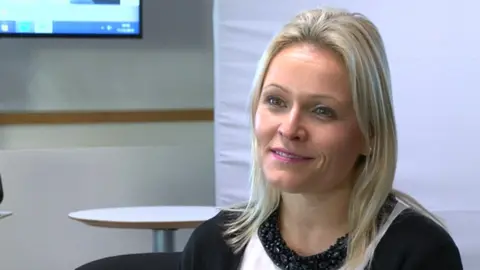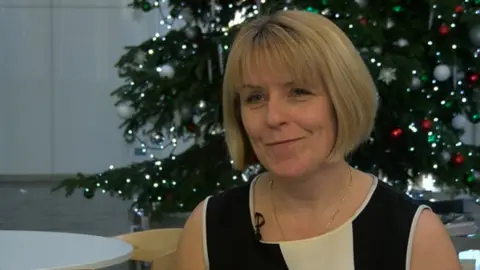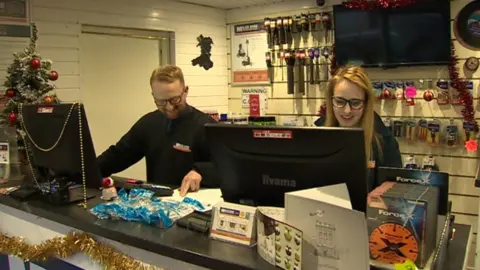Restrictive job adverts 'put women off', says top female boss
 BBC
BBCWomen are put off from applying for jobs in male dominated industries because of "restrictive" application forms, a top business chief has said.
Severn Trent chief executive Liv Garfield, one of the UK's youngest female CEOs, said some women were not applying for roles because of "must have" skills lists.
She said companies needed more female trailblazers.
Her firm "blind marks" CVs - removing applicants' names, race or sex.
Campaigners say large companies in male-dominated industries such as water, rail and construction have become increasingly aware that asking for specific experience in that sector reduces the number of women candidates for roles.
Ms Garfield said businesses could make simple changes to recruitment processes to create more diverse workplaces - which would increase skill sets in the process.
Severn Trent has 87,000 water customers across mid and north Wales under its Hafren Dyfrdwy brand.
Its job adverts focus on asking for skills gained from a variety of sectors and activities outside work to attract a more diverse range of candidates - rather than a list of "must have" specific skills.
"Often lots of women don't have the confidence to think, 'do I match all of those boxes?'," said Ms Garfield, who moved from Openreach to Severn Trent in 2014.
"If they don't match all the boxes, they immediately, almost, don't apply - they cross themselves off the list."
With 50% of Severn Trent's customers being women, she said it was vital there were more female role models in traditionally male-dominated sectors such as the water industry.
"If people can see that somebody has walked in those footprints or they can look up and see there is a role model there, it often gives people confidence.
"It's not that they couldn't have done it, it's just tricky being a trailblazer," she said.

Ms Garfield's comments were echoed by fellow colleague Jane Simpson - who, in 2015, became the UK's first female chief engineer of railways.
"I do believe that what you see is what you can be," said Ms Simpson, who left school at 16 and did her degree while working as an apprentice before doing a masters degree.
She moved to Severn Trent about two years ago, and is the company's head of capital delivery.
Ms Simpson said when she worked with Network Rail the firm changed its website and adverts to attract more women and young people to roles.
But she said there were still challenges to get more women into construction jobs.
"If you see a female engineer with children... you are more likely to join that organisation and be that woman," she added.
Gender equality charity Chwarae Teg has been working with companies, particularly in construction, to help promote greater diversity in the workplace.
"Very often they realise they've got a problem but they don't understand why because they don't feel they've ever done anything to put women off," said Helen Antoniazzi from the charity.

In south Wales, family-run plant hire business Miles Hire has been working with Chwarae Teg to attract more women to its roles.
Before the changes, 90% of job applicants for roles were male. Owner Ryan Miles said that figure was now split 50-50 between both sexes.
"We changed a lot of the wording in the description of the jobs to make it more appealing to all candidates," Mr Miles said.
"We changed the silhouette to make it both male and female in the job applications, and that seemed to work very well to bring in different types of candidates."
